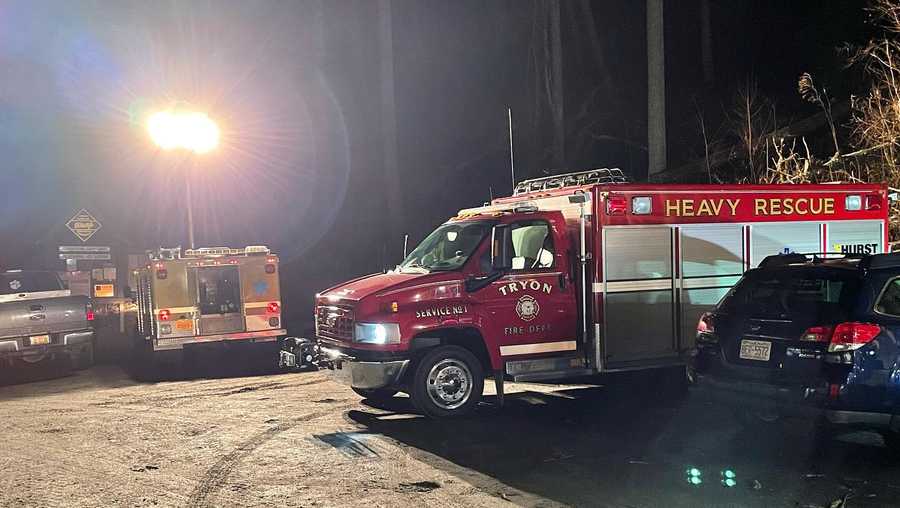Obituaries: Saying Goodbye To Beloved Neighbors

Table of Contents
Finding Obituaries for Deceased Neighbors
Locating the obituary of a deceased neighbor is the first step in acknowledging their passing and paying your respects. Several resources can help you in this search, each with its own advantages and disadvantages.
Online Obituary Resources
The internet has made searching for obituaries significantly easier. Many websites are dedicated to compiling and hosting obituaries from across the country.
- Legacy.com: A widely used website with a comprehensive database of obituaries from various sources.
- Dignity Memorial: A network of funeral homes that often posts obituaries online.
- Local Newspaper Websites: Many local newspapers maintain online archives of their published obituaries.
Search Tips: When using these online resources, remember to:
- Use the neighbor's full name.
- Include their city and state of residence.
- Specify a date range if you know approximately when they passed away.
Advantages and Disadvantages: Online resources offer convenience and accessibility, allowing you to search from anywhere. However, they may not always include every obituary, especially for those who passed away in smaller communities or without extensive online presence.
Local Newspaper Obituaries
Local newspapers remain a significant source of obituary information, often including more detailed biographical information than online-only listings.
- Check the online archives of your local newspaper's website. Most papers provide searchable databases of past issues.
- Visit your local library; they may have print copies of older newspapers.
Efficient Online Archive Search:
- Utilize the newspaper's search function, using keywords such as the neighbor's name, address, or even associated organizations.
- Check for obituaries published around the approximate date of death.
Newspaper obituaries often offer a more personal touch, reflecting the unique aspects of the deceased's life and contributions to the community.
Funeral Homes and Services
Funeral homes are a direct source of obituary information. Even if you are unable to attend the services, you can still contact the funeral home to inquire about obtaining an obituary.
- Contact local funeral homes directly, either by phone or through their website.
- Provide the name and approximate date of death of your neighbor.
Funeral homes can provide the most accurate and up-to-date information, including details about any memorial services or gatherings.
Understanding the Information in an Obituary
Obituaries provide valuable insights into the life of the deceased. Understanding the information they contain allows us to better appreciate their contributions and celebrate their memory.
Key Information Found in Obituaries
Obituaries typically include:
- Full Name: The legal name of the deceased.
- Date of Birth and Death: Key dates marking the span of their life.
- Cause of Death: Often included, but not always at the family's discretion.
- Biographical Details: A summary of their life, including education, career, family, hobbies, and accomplishments.
- Survivors: A list of immediate family members and loved ones left behind.
- Funeral Arrangements: Details about any services, visitation hours, and burial or cremation information.
The level of detail varies depending on the family's wishes and the publication's style.
Interpreting the Language and Tone
The writing style and tone of an obituary can reflect the personality and values of the deceased.
- Formal: A traditional and respectful approach.
- Informal: A more conversational and personal tone, reflecting a close relationship.
- Humorous: Reflecting the deceased's personality and sense of humor.
Photos and other elements, such as favorite quotes or anecdotes, add to the overall impact and provide a more complete picture of their life.
Offering Support After a Neighbor's Passing
Losing a neighbor impacts the entire community. Offering support to the grieving family demonstrates empathy and strengthens community bonds.
Expressing Condolences
Expressing sympathy is a crucial aspect of providing support.
- Sympathy Cards: A thoughtful way to convey your condolences.
- Flowers: A traditional expression of sympathy.
- Personal Visits: A more personal approach, but only if you are close to the family and feel comfortable doing so.
Remember to be genuine and respectful in your expressions of sympathy.
Practical Support for Grieving Families
Beyond condolences, practical help is invaluable during this difficult time.
- Meal Delivery: Providing prepared meals relieves the burden of cooking.
- Childcare Assistance: Offering to watch the children allows the family to focus on their grief.
- Help with Errands: Assisting with grocery shopping, laundry, or other tasks frees up time and energy.
Offer specific help rather than general offers, making it easier for the family to accept.
Community Support Networks
Neighbors can play a significant role in supporting bereaved families.
- Organize a meal train, where neighbors take turns providing meals.
- Coordinate childcare assistance among families in the neighborhood.
- Offer to help with yard work or other household tasks.
Community support helps lighten the burden and provides a sense of shared grief and healing.
Conclusion
Saying goodbye to a beloved neighbor is never easy, but the act of reading their obituary and offering support to their family allows us to acknowledge their life and honor their memory. Finding obituaries, understanding their content, and offering practical support can help the grieving process for both the bereaved family and the community. Remember to utilize the resources mentioned above when searching for obituaries, and don't hesitate to offer support to those who have lost a loved one. By actively participating in these acts of remembrance, we strengthen the fabric of our neighborhoods and celebrate the lives of those we've lost. Use online resources, local newspapers, and funeral homes to find and understand obituaries of your neighbors and be a source of strength within your community.

Featured Posts
-
 Peninsula Hills Search Missing Elderly Hiker
May 13, 2025
Peninsula Hills Search Missing Elderly Hiker
May 13, 2025 -
 Self Defense Insurance Protecting Yourself After A Shooting Incident
May 13, 2025
Self Defense Insurance Protecting Yourself After A Shooting Incident
May 13, 2025 -
 India Myanmar Food Festival A Culinary Bridge
May 13, 2025
India Myanmar Food Festival A Culinary Bridge
May 13, 2025 -
 Hollywood Shut Down Writers And Actors On Strike What This Means For Film And Tv
May 13, 2025
Hollywood Shut Down Writers And Actors On Strike What This Means For Film And Tv
May 13, 2025 -
 Mosque In Muslim Mega City Issues Strong Denial Following Police Inquiry
May 13, 2025
Mosque In Muslim Mega City Issues Strong Denial Following Police Inquiry
May 13, 2025
